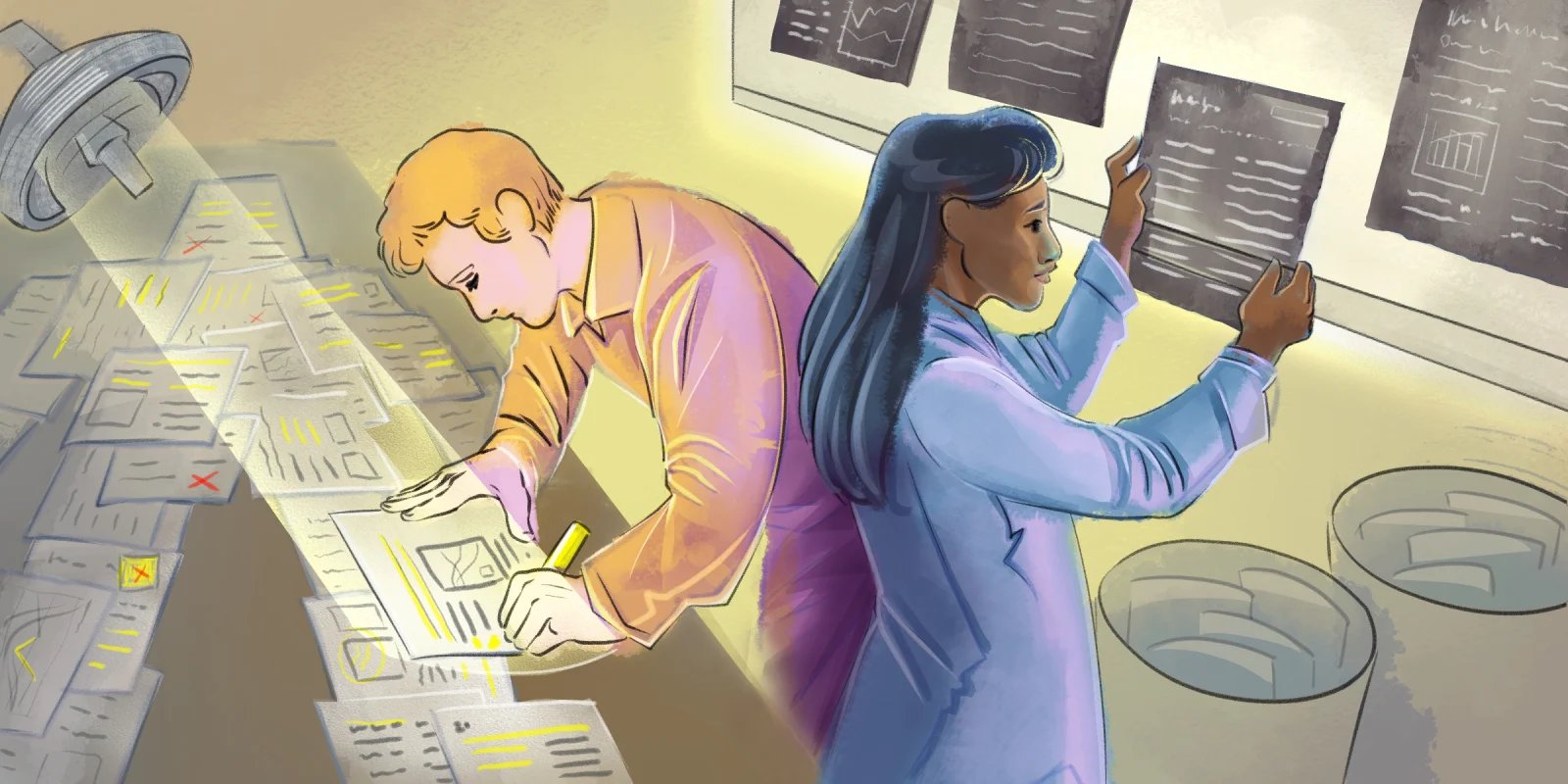SOHO 2021 held as a virtual event concluded on Sept. 11 2021. Sessions included disease-specific educational lectures reviewing current practice, eposters depicting clinical trials updates from the international malignant hematology community, and the more traditional "Meet the Professor" sessions. Virtual booths from the pharmaceutical industry were available for discussion and participation.
The SOHO meeting is unique as it covers only hematologic malignancies. Another additional unique and interesting feature of this meeting included predictions by disease experts of future newer therapies and trends in the session called “Next Questions”. The disease experts will hopefully be accurate in their predictions over the next many years.
Here are my preferred highlights from the clinical trials related to lymphoma:
1. ECHELON-1. Five year update 1 was presented by Dr. Ramchandren. There were 1,334 patients with stage III/stage IV untreated classical Hodgkin's lymphoma randomized 1:1 to receive Brentuximab Vedotin + AVD (BV +AVD) or standard regimen using ABVD. PFS per investigator assessment at five years follow-up remains significantly improved at 82% in the BV +AVD arm and 75% in the ABVD arm. Toxicities have been manageable. At five years there was complete resolution in 71% of patients experiencing peripheral neuropathy in BV +AVD arm and 79% in ABVD arm. Most residual neuropathy has been grade 1/2. There was no observable impact of study treatment on ongoing pregnancies or live births. There was no increase in secondary malignancies in the BV +AVD arm.
Hence, BV +AVD represents a preferred Bleomycin sparing option in patients with stage III/IV classical Hodgkin's lymphoma that also does not require interim PET scan to change therapy.
2. ECHELON-2. Five year outcome 2 was presented by Dr. Iyer. There were 452 patients with CD 30 positive untreated peripheral T-cell lymphoma (PTCL) randomized 1:1 to receive Brentuximab Vedotin plus CHP or standard CHOP chemotherapy. At five years, PFS of 51.4% was reported with BV-CHP and 43% with CHOP. Median PFS was 62 months for BV-CHP and 23 months for CHOP. Both PFS and overall survival remain statistically significant. At five years there was improvement or complete resolution in 72% of patients experiencing peripheral neuropathy in BV +CHP arm and 78% in CHOP arm.
The results further confirm BV-CHP as the standard of care in newly diagnosed patients with CD 30 positive PTCL and anaplastic large cell lymphomas.
3. LOTIS-2. Dr. Kahl presented the update 3. Phase 2 multi center open label single arm study demonstrated durable responses to loncastuximab tesirine (Lonca), a humanized anti-CD19 antibody conjugated to a pyrrolobenzodiazepine dimer toxin in patients after two or more systemic treatments with relapsed or refractory diffuse large B-cell lymphoma. At greater than 17 months of follow-up, no new toxicity concerns have emerged. 145 patients have received one or more dose. Primary efficacy endpoint as assessed by central review was overall response rate of 48.3% with a complete response of 24.8%. Median PFS is 4.9 months and median overall survival 9.5 months.
Lonca provides meaningful complete remission and durable responses and may be one of the options that can facilitate the patients with refractory/relapsed diffuse large B-cell lymphoma to proceed on to CD 19 directed chimeric antigen receptor T-cell therapy.
4. RE-MIND2. Dr. Nowakowski presented 4: the study data. A total of 3,454 patients were enrolled from 200 sites in this retrospective observational international study and randomized patients 1:1 to receive tafasitamab plus lenalidomide or a compartor chemotherapy. Tafasitamab, humanized monoclonal antibody targeting CD 19 present on B-cells, is currently in approved therapy for relapsed or refractory diffuse large B-cell lymphoma. Patients eligible for autologous stem cell transplant were excluded and nearest neighbor 1:1 matching design was chosen for comparison. Comparators to tafasitamab plus lenalidomide were bendamustine + rituximab (BR) and rituximab + gemcitabine + oxaliplatin (R-GemOx) Primary endpoint of the study was overall survival. Tafasitamab + lenalidomide was associated with longer OS vs BR (P <.0001), and R-GemOx (P =.0004). Significantly improved OS for second-line therapy was found for individuals who received tafasitamab + lenalidomide compared with BR ( P =.0002), and R-GemOx (P =.0067). PFS was 12.1 months in the tafasitamab + lenalidomide group and 5.8 months in the comparators. (P <.0001). Adverse events related treatment discontinuation was similar at nearly 15% in all 3 groups with usual and expected toxicities. Tafasitamab plus lenalidomide is an effective chemotherapy free regimen demonstrating real world experience for autologous transplant ineligible patients with relapsed/refractory diffuse large B-cell lymphoma.
5. GELTAMO. Dr. Rey Bua, on behalf of the Spanish GELTAMO group, presented 5: the update of Phase 2 study. This investigated the combination of ibrutinib with R-GEMOX in patients with relapsed or refractory nongerminal center B-cell like diffuse large B-cell lymphoma after at least one line of therapy containing rituximab and anthracyclines. Cycles were administered every two weeks as follows: Ibrutinib 500 mg daily, rituximab 375 mg/meters sq day 1, gemcitabine 1 g/meters sq day 1 or day 2, oxaliplatin 100 mg/meters sq day 1 or day 2 and dexamethasone 20 mg day 1-4.
64 patients were enrolled and 61% of the enrolled patients had primary refractory disease. 40% of the patients had two lines of therapy and 24% had three or more lines of treatment. At the end of four cycles, complete remission rate was 34.4% and partial remission rate was 18.8% with overall response rate of 53.1%. Majority of grade 3 or more adverse events were hematologic, and 15% patients had grade 3 diarrhea. Four patients had grade 5 toxicities to include aspergillosis, pneumonia and heart failure. Ibrutinib plus R-GEMOX is effective therapy in relapsed/refractory patients and may be an option as a bridge to other consolidation therapies while carefully weighing the toxicities.
6. ZUMA 1 vs. TRANSCEND NHL-001. Using matching-adjusted indirect comparison method, the outcomes were evaluated in relapsed or refractory large B-cell lymphoma after two or more lines of therapy. Authors compared 6 data of CAR-T from ZUMA 1 using Axicabtagene Ciloleucel (Axi-cel) and TRANSCEND-NHL 001 using Lisocabtagene Maraleucel (liso-cel) single arm trials. Differences in overall response rates were not statistically significant. Axi-cel when compared to liso-cel had improved PFS (HR 0.61), overall survival (0.53) and higher rate of grade 3 or more cytokine release syndrome (CRS) and neurotoxicity. The data as appropriately recognized by the authors has obvious limitations, considering these were retrospective, indirect comparisons of two studies. The management of CRS and neurotoxicity has improved since approval of these two agents with increasing experience in clinical practice.
References:
- Ramchandren R, Długosz-Danecka M, Connors JM, et al. Brentuximab vedotin with chemotherapy for patients with previously untreated stage III/IV classical Hodgkin lymphoma: 5-year update of the ECHELON-1 study. Abstract HL-147. Society of Hematologic Oncology; September 8-11, 2021.
- Iyer S, Trümper L, O’Connor OA, et al. The ECHELON-2 trial: 5-year results of a randomized, double-blind, phase 3 study of brentuximab vedotin and CHP (A+CHP) versus CHOP in frontline treatment of patients with CD30-positive peripheral T-cell lymphoma. Abstract TCL-150. Society of Hematologic Oncology; September 8-11, 2021.
- Kahl BS, Hamadani M, Caimi PF, et al. LOTIS-2 follow-up analysis: Updated results from a phase 2 study of loncastuximab tesirine (Lonca) in relapsed or refractory diffuse large B-Cell lymphoma. Abstract ABCL-022. Society of Hematologic Oncology; September 8-11, 2021.
- Nowakowski GS, Hyun YD, Mondello P, et al. Overall survival with tafasitamab + lenalidomide versus routinely administered therapies for ASCT-ineligible relapsed or refractory diffuse large B-cell lymphoma: outcomes from the observational RE-MIND2 study. Abstract ABCL-346. Society of Hematologic Oncology; September 8-11, 2021.
- Rey Bua B, Jimenez UA, Sanchez B, et al. Updated results of a phase 2 study from GELTAMO investigating the combination of ibrutinib with R - GEMOX in patients with relapsed or refractory diffuse large B -cell lymphoma. Abstract ABCL-181. Society of Hematologic Oncology; September 8-11, 2021.
- Oluwole O, Chen J, Chan K,et al. Matching-Adjusted Indirect Comparison (MAIC) of Axicabtagene Ciloleucel (axi-cel) and Lisocabtagene Maraleucel (liso-cel) in Relapsed or Refractory (R/R) Large B-Cell Lymphoma (LBCL) After Two or More Prior Lines of Therapy. Abstract ABCL-289. Society of Hematologic Oncology; September 8-11, 2021.
Rakesh Gaur MD, MPH, FACP reports no conflicts of interest.
Illustration by April Brust







